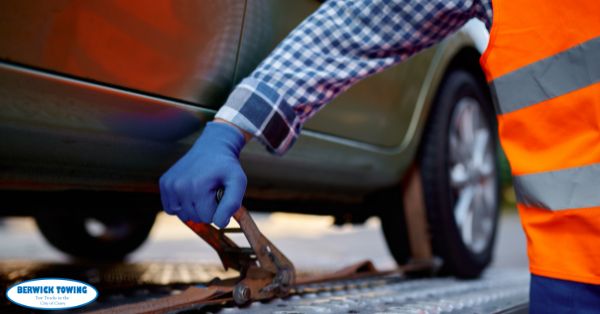Introduction
Towing is a crucial service that helps us out of tricky situations on the road. Whether you’re dealing with a breakdown, an accident, or need to transport heavy equipment, understanding the distinctions between heavy and light duty towing is essential. In this blog, we’ll take a closer look at the differences between these two types of towing services and when each is most appropriate.
What Is Light Duty Towing?
Light duty towing is designed for smaller vehicles such as passenger cars, motorcycles, and smaller SUVs. Here are some key aspects of light duty towing:
-
Weight Capacity: Light duty tow trucks typically have a lower weight capacity, usually up to 10,000 pounds. They are equipped to handle smaller vehicles and trailers.
-
Versatility: Light duty towing is versatile and can be used for a wide range of situations, including accidents, breakdowns, and transporting vehicles to repair shops.
-
Speed: Light duty towing is often faster and more efficient, making it a suitable choice for everyday situations.
-
Common Uses: Light duty towing is commonly used for personal vehicles, rental cars, and small commercial vehicles.
When to Choose Light Duty Towing:
-
Small Vehicles: If you have a passenger car, motorcycle, or a small SUV that needs towing, light duty towing is the appropriate choice.
-
Local Towing: When your towing needs are local and involve shorter distances, light duty towing is efficient and cost-effective.
What Is Heavy Duty Towing?
Heavy duty towing, on the other hand, is designed for larger and heavier vehicles and equipment. Here are some key aspects of heavy duty towing:
-
Weight Capacity: Heavy duty tow trucks are built to handle substantial weight, often exceeding 10,000 pounds and going up to 30,000 pounds or more.
-
Specialized Equipment: Heavy duty towing requires specialized equipment, including larger and more powerful tow trucks, to safely handle the weight and size of the vehicles being towed.
-
Complex Situations: Heavy duty towing is often needed for complex situations, such as recovering tractor-trailers, large construction vehicles, or buses.
-
Long-Distance Towing: When vehicles need to be transported over long distances, heavy duty towing is the preferred choice.
When to Choose Heavy Duty Towing:
-
Commercial Vehicles: If you have a commercial vehicle, such as a delivery truck, bus, or construction equipment, heavy duty towing is the right choice.
-
Accidents and Recovery: For accidents involving large vehicles or the recovery of overturned or stuck heavy machinery, heavy duty towing is necessary.
-
Long-Distance Transport: When you need to transport heavy equipment or vehicles over long distances, heavy duty towing is the most suitable option.
Conclusion
Understanding the distinctions between heavy and light duty towing is essential for making the right choice when you need towing services. Whether you have a compact car or heavy machinery, there’s a towing solution designed to meet your specific needs. By knowing when to opt for heavy or light duty towing, you can ensure a safe and efficient resolution to your towing requirements, no matter the situation you find yourself in on the road.
Commercial Towing Services Melbourne and South Eastern Suburbs.
Berwick Towing & Transport located near the 29 Blaxland Dr, Dandenong North VIC 3175 Please check below map.
Berwick Towing & Transport
27B William Rd
Berwick VIC 3806
https://berwick-towing.com.au/
* Find us on Google Map

